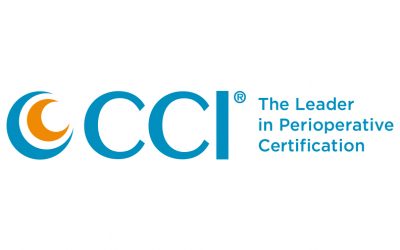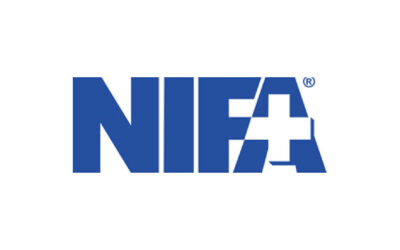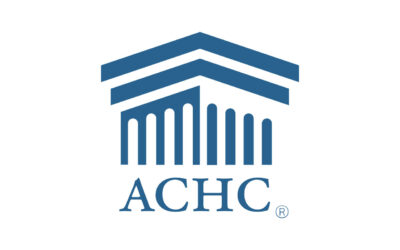By Cambria J. Nwosu, DNP, RN, CNOR, CSSM(E)
While finishing nursing school, a very wise mentor and professor instructed the entire class that there were two things that every nurse should obtain after completing their boards. Those two things were obtaining nursing liability insurance and securing nursing certification in the specialty that you would call your own.
As a student, the nursing certification mention intrigued me the most since this is not a normal subject taught within nursing curriculums. The who, what and why of it all hasn’t been a topic or something to strive for which could lead to why other disciplines including some nurses themselves don’t see the true value of nursing certification. But to be fair, there are both pros and cons of nursing certification which will be explored here.
Certification, as defined by the American Board of Nursing Specialties (ABNS), is “the formal recognition of the specialized knowledge, skills, and experience demonstrated by the achievement of standards identified by a nursing specialty to promote optimal health outcomes.” (ABNS, 2005). Hence, this is very different than passing the NCLEX national nursing board exam, which is mandated in the United States to practice as a registered nurse, as that displays competency as a nurse in the beginning stages of their practice. Certification in a specific specialty is a testimony of a nurse’s commitment to their expertise and excellence in patient care within that specialty. However, every certification and its requirements for obtaining and maintaining that certification vary on multiple factors; requirements, years of service, continuing education, etc. Due to the extraordinary work that it does take to not only obtain nursing certification, but also to maintain it, the benefits of that certification can extend beyond having the earned display of initials behind one’s RN licensure. The outside world, including current or potential employers, colleagues and patients can be educated on the value of nursing certification. Education on what a certified nurse and their objective measure of knowledge in relation to improving health outcomes is imperative.
The pros or advantages of certification can be vast. The validation of knowledge that lies within the specific certification can benefit the certificate holder in more ways than one. The most recent edition of the Institute of Medicine Report, The Future of Nursing: Leading Change, Advancing Health (Institute of Medicine, 2011) advises nurses to develop and enrich a deep commitment to lifelong learning. This continuous process of learning goes far beyond initial didactic education learning embedded in historical institutional settings such as colleges and universities. Most nurses are trained initially to model their current nursing practice on behalf of their teachings as novice nursing students. As a certified nurse, one is committed to professional growth and lifelong learning. In doing so, the nurse stays ahead as nursing and medicine continually evolve. Certification is a large part of recognizing the continuous learning of the practitioner in an official capacity.
As a certificant myself the benefits of certification for me include personal growth, recognition, heightened levels of competence and self-confidence in daily clinical practice. Employers, especially those involved in the Magnet Recognition Program, prefer that nurses are certified, and even through various recruitment methods, will offer financial incentives. Certification often is associated with increased employer and peer recognition, marketability in the workforce and increased salary. Specifically for the surgical specialty of nursing, research has described the benefits and promotion of improved surgical outcomes.
The cons of certification, regardless of nursing specialty, include the various barriers that nurses face to dedicate themselves to achieving certification or even maintaining it after certification. Most practitioners have heavy work and life schedules that prevent the dedication and time commitment to focus on studying for the required exams to successfully pass. Most certifications have a perception that the associated costs in preparation are expensive for the actual certification exam including any additional fees associated with recertification efforts. Depending on the location of the nurse and/or hospital system they work with, the ability to afford a certification exam (or recertification) in hospitals not offering any financial incentives for obtaining this achievement can be prohibitive. To expand even further, outside of financial incentives, some hospitals or care facilities don’t even recognize the excellence that comes with a certification, and this deters nurses from even obtaining the credential. Hospitals can assist with this perception by participating in annual national celebrations such as Certified Nurses Day and National Nurses Week with a real effort to recognize their certified nurses. Nurses have reported that they have a fear of failing standardized exams, which is another barrier. More hospital systems and administrators can assist with this global fear by offering resources and/or partnering with various organizations and certification bodies that can provide certification test prep assistance. Certification, in most instances, is often voluntary and nurses can feel that they are alone in their endeavor, which should not be the case.
In my circumstance, due to my educational background, and in working with others who value nursing certification, I have been able to assist other nurses and organizations in the continued work of educating why certification matters. My journey as a perioperative nurse, and now as a nurse executive, has been further enriched by the choice I made to become a certified nurse. The network of certification and the quest for continued education have made a difference in how I care for my patients and also how I lead others. I am now always one step ahead of my practice. There are always two sides to a coin but with nursing certification, I believe that the good side will always outweigh the bad.
References
American Board of Nursing Specialties Promoting Excellence in Nursing Certification A POSITION STATEMENT ON THE VALUE OF SPECIALTY NURSING CERTIFICATION (retrieved from: https://www.aaacn.org/sites/default/files/images/ABNS-cert-stat.pdf)
Dierkes, A. M., Schlak, A., French, R., McHugh, M. D., & Aiken, L. (2021). Why some nurses obtain specialty certification and others do not. The Journal of nursing administration, 51(5), 249.
Fights, S. D. (2012). Reap the benefits of certification. Nursing2021, 42(1), 10-11.
Fitzpatrick, J. J. (2017). The value of nursing certification: Revisited and reinforced. Journal of the Association for Vascular Access, 22(3), 131-134.
Garrison, E., Schulz, C., Nelson, C., & Lindquist, C. (2018). Specialty certification: Nurses’ perceived value and barriers. Nursing Management, 49(5), 42-47.
Institute of Medicine. (2011). The future of nursing: Leading change, advancing health. Washington, DC: The National Academies Press
Kaplow, R. (2011). The value of certification. AACN Advanced Critical Care, 22(1), 25-32.
Stucky, C. H., De Jong, M. J., & Wymer, J. A. (2020). Certified surgical services manager (CSSM): The new gold standard for perioperative nurse leaders. Journal of PeriAnesthesia Nursing, 35(6), 557-563.
 Cambria Nwosu is currently serving as the Director of Practice Administration for Neurology at Access Telecare, a national telemedicine healthcare practice and as a Legal Nurse Consultant for SUN, Inc., a legal consultant business she co-owns with her husband. She is the former Chair of the Certification Council for the Competency and Credentialing Institute (CCI) where she served for 8 years in various certified test development initiatives.
Cambria Nwosu is currently serving as the Director of Practice Administration for Neurology at Access Telecare, a national telemedicine healthcare practice and as a Legal Nurse Consultant for SUN, Inc., a legal consultant business she co-owns with her husband. She is the former Chair of the Certification Council for the Competency and Credentialing Institute (CCI) where she served for 8 years in various certified test development initiatives.











